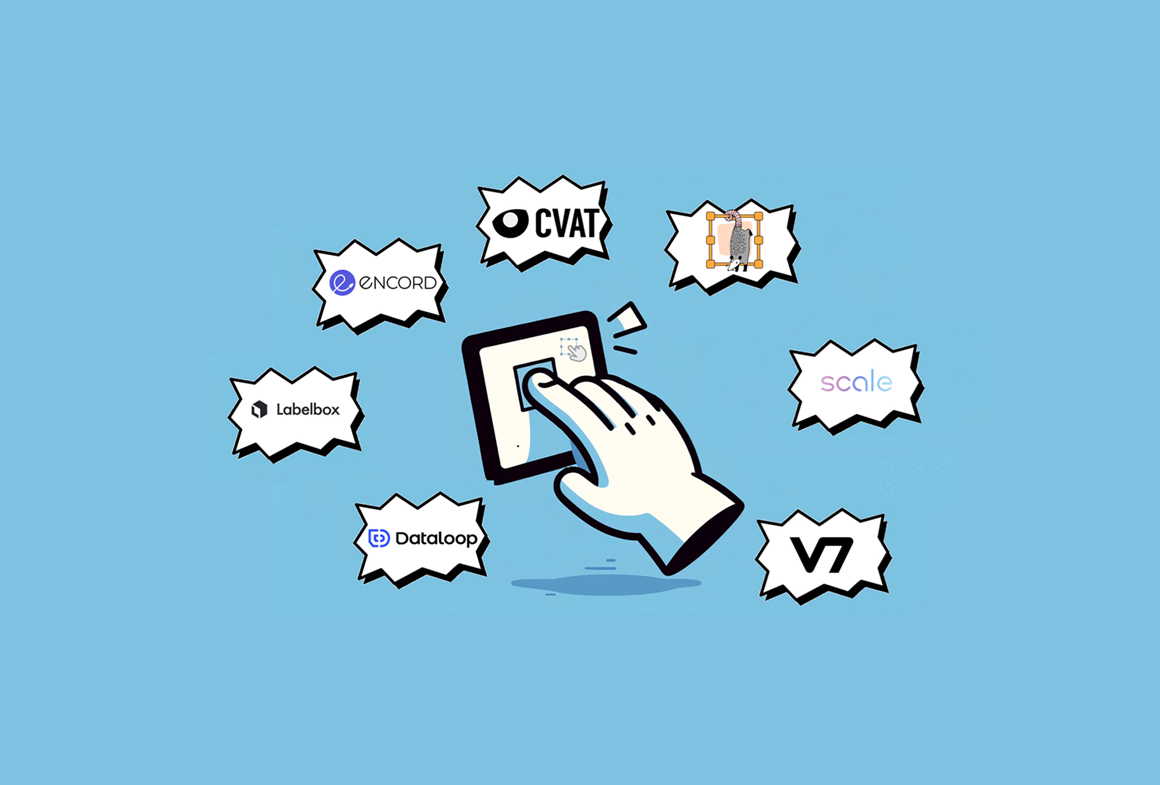AI in luxury: optimizing the customer experience and detecting counterfeits

💡 Artificial Intelligence in luxury: data collection, exploitation and development of artificial intelligence models for various use cases. Discover how the Luxury sector is reinventing its practices thanks to AI!
AI plays a key role in all sectors, including luxury goodswhere it is used to generate images, test collections and accelerate the creative process. Thanks toaccurate and consistent data annotation, experts can train AI models models capable of understanding and interpreting images and texts associated with the world of luxury (various pieces and products, fashion-related events such as Fashion Week).
Artificial intelligence is revolutionizing this sector, offering unprecedented possibilities for creative design, optimizing production, enhancing the customer experience and integrating ethical principles, underlining the importance of a balanced and responsible approach to technological innovation. This strategic use of AI enables luxury players to optimize their processes and deliver innovative experiences to their customers. This is the core business of this industry: offering a unique experience to some of the most demanding customers!
High tech & AI in luxury: personalized experiences thanks to AI and virtual reality
Let's take a concrete example: that of virtual reality and AI (undoubtedly one of the most telling, since by now we've all heard of virtual reality headsets like the Oculus). The integration of AI into virtual reality experiences is opening up new perspectives in the luxury sector. The use of high tech enables the creation of immersive, personalized experiences. Customers can now enjoy immersive, personalized experiences, enabling them to virtually visualize products in their real environment.
This innovative approach enhances the evaluation of product appearance prior to purchase, reinforcing customer confidence. By offering unique virtual experiences, luxury brands can differentiate themselves and build customer loyalty, while reinforcing their unique market proposition.
Counterfeit detection thanks to AI and image annotation
The fight against counterfeiting is a major challenge for the luxury industry. The use of artificial intelligence in the creative process and the protection of intellectual property (detection of objects such as counterfeit logos or stitching that does not comply with brand specifications) enables counterfeit products to be identified efficiently.
By analyzing patterns and anomalies, companies can protect their brands and prevent counterfeit products from entering the market. This use of artificial intelligence reinforces basic consumer confidence in the authenticity of prestige products and preserves brand reputation. We often forget to mention that this also involves the review of massive quantities of data - for example, photos from a brand's last 20 collections. Luxury is a very well-documented industry: visual data is easy to obtain. On the other hand, it takes time and method to meticulously review and annotate each of these images to enable AI models to interpret them! That's what our data annotators at Innovatiana !
Innovation and personalization thanks to AI in luxury goods
In the luxury sector, artificial intelligence (AI) is transforming the industry by optimizing creative processes and enhancing the customer experience. For example, automatic design generation algorithms enable designers to push back the limits of their creativity by exploring new shapes, textures and styles. This approach stimulates innovation and offers unique perspectives in the luxury goods design process, which is akin to an artistic creation process.
In addition, artificial intelligence (AI) enables in-depth analysis of consumer preferences and behavioral issues, playing an important role in adjusting market strategies and optimizing supply chain management.
By collecting and interpreting data, luxury brands can offer personalized recommendations to their customers. This increased personalization of the shopping experience improves customer satisfaction and strengthens brand loyalty!
AI's impact on sustainability and ethics in Luxury
The luxury industry is a model of sustainability in the fashion sector
Fashion is often criticized for its environmental impact, due to the mass production and rapid consumption of clothing. However, the luxury industry stands out for its commitment to sustainability and quality. Unlike"fast fashion", luxury garments are made in limited quantities from high-quality materials, giving them exceptional longevity. These pieces are designed to be reused and resold, giving them multiple lives.
By embracing artificial intelligence, the luxury sector has the opportunity to further strengthen its leadership role in environmental responsibility. AI can help optimize production processes, reduce waste and minimize carbon footprints. By embracing these technologies, the luxury industry can become the first truly responsible major player, proving that it is possible to combine elegance, quality and respect for the environment.
Integrating AI to meet sustainability challenges
Integrating artificial intelligence into the luxury sector isn't just about innovation and personalization; it also plays a leading role in promoting sustainability and ethics. AI models can analyze supply chains to identify inefficiencies and unsustainable practices, enabling luxury brands to reduce their carbon footprint and promote ethical practices.
In addition, AI can help optimize the use of materials, minimizing waste and ensuring more environmentally-friendly production. This approach not only meets consumers' growing expectations of social and environmental responsibility, but also strengthens brands' reputations as leaders in the adoption of sustainable and ethical practices.
A few examples of AI use cases by major luxury brands
Leading luxury brands such as Gucci, Dior, Yves Saint Laurent and many others are actively exploiting artificial intelligence for a variety of applications. A concrete example of an AI use case in the luxury sector is theuse of image recognition technology to enhance the online shopping experience.
Analyze customer preferences with AI
These prestigious brands use machine learning algorithms to analyze customer preferences based on data such as purchase histories, social network interactions and stated preferences. Using this data, AI can recommend specific products for each customer, based on their tastes and personal style. LVMH is also using AI for supply chain management and customer experience.
As part of these innovations, a reading on the role of AI in creative generation and collaboration with artists and designers reveals its potential to create new propositions and possibilities in fashion.
Artificial intelligence: how can it be used to improve supply chain and logistics?
Luxury brands are also using AI to improve their supply chain and logistics (see our article on AI in the world of logistics). Using AI-based systems, they can predict demand trends, optimize stock levels and forecast production requirements.
This reduces costs, minimizes delays and offers optimal product availability to customers. Louis Vuitton uses AI for personalized customer service experiences and innovation.
Creating and customizing collections with AI
Artificial intelligence models enable fashion designers to push back the limits of their creativity. Automatic design generation algorithms enable new shapes, textures and styles to be explored, facilitating innovation in the luxury goods design process. This enables designers to quickly test several concepts and select those that best meet market expectations and emerging trends.
What's more, AI enables greater personalization of collections. Employees at these major fashion houses can analyze their customers' individual preferences to offer tailor-made products. This personalization goes beyond simply adapting colors or patterns; it can include modifying cuts, materials, and even functionality, offering a truly unique and exclusive shopping experience (that's what we expect from luxury!).
Generative AI: a source of inspiration for the luxury sector
How can generative AI be used in luxury goods?
Generative artificial intelligence, or generative AI, is bringing new perspectives to the luxury sector. These advanced AI models, such as OpenAI's ChatGPT, are capable of generating realistic content, including text, images and even designs.
Leading luxury brands are beginning to exploit these technological advances to spark ideas for design and innovation. The integration of artificial intelligence AI into this process enhances creativity and innovation! But it doesn't replace the designer's work (and never will - in the same way that we'll always prefer beautiful industrial work or "homemade" to an industrial or mass-market product).
Experimenting with generative AI: intelligent assistants to extend designers' creative potential?
Thanks to generative AI, fashion and design designers can experiment with new shapes, textures and styles of luxury products. These AI models can generate unique and original design proposals, offering brands new creative perspectives.
For example, a fashion designer can feed the AI model with style and trend references, and the generative AI will then produce design suggestions that can be refined and adapted according to the brand's needs and vision.
In addition, luxury houses can use generative AI to create personalized and exclusive experiences. For example, by using generative AI models, a jewelry brand can offer its customers unique designs, created especially for them according to their preferences and personal style. This adds a dimension of personalization and rarity, reinforcing the perceived value of luxury products.
However, it should be noted that the use of generative AI in luxury goods is still relatively new, and brands need to find the right balance between technological innovation and the expression of their identity and craftsmanship.
💡 Generative AI models can be used as a source of inspiration and exploration, but they should not replace the creative talent and expertise of professional designers and craftsmen.
How do AI and the human dimension of artistic creation coexist?
It's important to note that, while generative AI offers many opportunities, the human dimension remains essential. AI models can serve as powerful tools for inspiration and exploration, but they are no substitute for the creative talent and expertise of designers and craftsmen. Designers need to find the right balance between technological innovation and the expression of their identity and craftsmanship.
In conclusion
In conclusion, the integration of artificial intelligence by leading luxury brands into their strategy underlines the growing importance of AI in the industry, notably to enhance the customer experience, personalize recommendations, create exclusive immersive experiences and streamline their operations.
A recent study showed the impact of AI, particularly generative AI, on the luxury sector, speeding up the creative process and generating new design propositions. Thanks to AI, they remain at the forefront of innovation and maintain their position as leaders in the luxury industry.
If you're an AI professional, Data Science specialist or luxury sector specialist, don't hesitate to make an appointment with us to find out how artificial intelligence can revolutionize your business and strengthen your market positioning. We've worked with several players in the field, and can share with you some concrete examples of AI applications in fashion and luxury.


-hand-innv.png)



